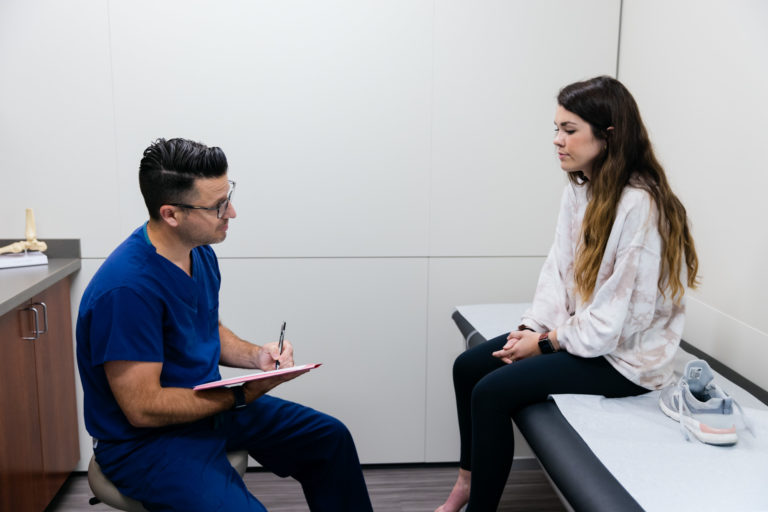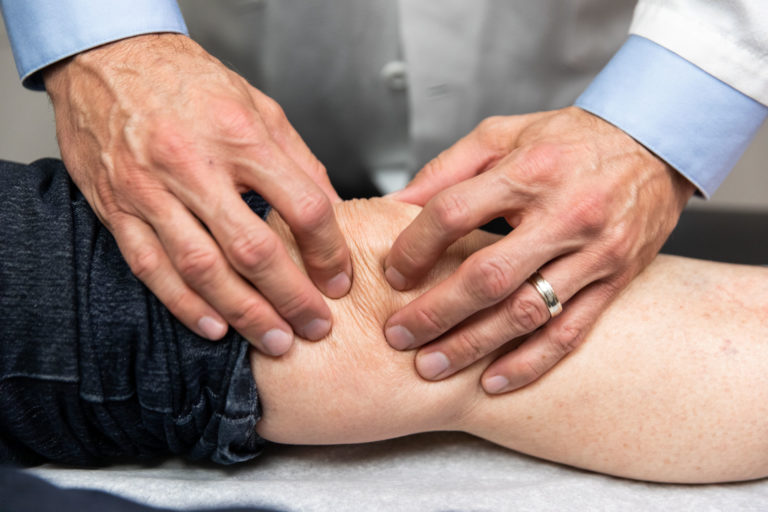Tendonitis Treatment in Kansas City
Tendonitis
Comprehensive Tendon Care
from Kansas City’s Best.
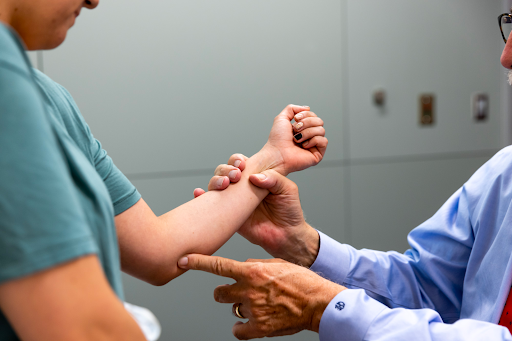
Understanding the Basics of Tendonitis
What is Tendonitis?
Tendonitis occurs when tendons—fibrous tissues that connect muscle to bone—become irritated or inflamed.
This inflammation often leads to pain and swelling in the area. While common for athletes, tendonitis can happen to anyone.
With over 60 highly trained providers across the metro, Kansas City Orthopedic Alliance specializes in tendonitis treatments for patients of all ages.
Causes
Causes of Tendonitis
Athletes may be more likely to experience tendonitis, especially if their form isn’t optimal for their musculoskeletal health. In fact, common types of tendonitis include:
Symptoms
Symptoms & Signs of Tendonitis
Tendonitis pain typically originates at the inflamed tendon itself. While you may not realize you have tendonitis until diagnosis, you will probably notice changes in how your body feels.
Common tendonitis symptoms include:
- Acute or sharp pain when moving the affected joint
- Dull aching at the site while at rest
- Local tenderness
- Swelling
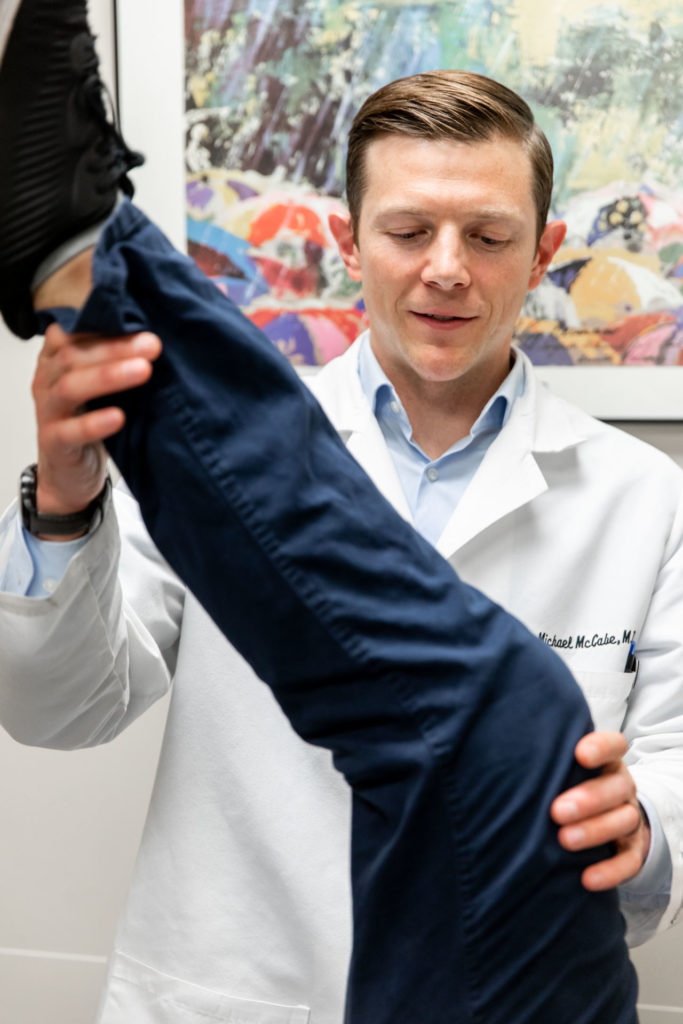
Instead of assuming the problem will resolve on its own, it is always best to visit a Kansas City Orthopedic Alliance orthopedic specialist to guide you on the right path to recovery.
The faster you seek tendonitis treatment, the sooner you will return to your normal lifestyle. With our expertise, technology, and dedication to patient care, Kansas City Orthopedic Alliance provides long-term solutions, whether that be physical therapy referrals, medication, or other proven treatments.
Affected Areas
- Shoulder
- Wrist
- Knee
- Knees
- Ankle/heel
Treatments
- Physical or Occupational Therapy
- Medications
- Specialized Procedures (Tenex)
- Injections
- Rest
- Surgery (in rare, severe cases)
Kansas City Orthopedic Alliance Tendonitis Assessment
Assessing the Injury
If you suspect you have tendonitis, it is important you schedule an appointment as soon as possible. That way, we can assess the issue and determine the best course of action moving forward.
Often, our physicians can diagnose tendonitis through a physical examination alone. However, if we require more information or want to rule out other underlying conditions, we may order an X-ray or other imaging.
Prior to your initial visit, we will ask that you fill out intake information in our patient portal.
During your initial appointment, we will often ask questions such as:
After your assessment, we will devise a tendinitis treatment plan centered around the severity of the condition, your unique lifestyle, and long-term goals.
- Does your pain currently limit you or your activities?
- Has your pain progressed or worsened recently?
- Have you noticed any change in your symptoms that have made it more challenging to function?
- What are your lifestyle goals?
- How has pain affected those goals?
Injury Prevention
How to Prevent Tendonitis
Although you may not be able to completely prevent tendonitis, there are ways to greatly reduce your chances of developing the condition. The moment you notice discomfort with activity, taking a short break, stretching the affected area, or changing positions may help.
The idea is to give your tendons a chance to rest if they have experienced constant strain. For athletes, cross-training can help ease stress by alternating different activities. For example, instead of running every day, you could alternate days between running and lower impact exercise. Even while performing your regular sport, be sure to focus on your form and technique. In doing so, you can optimize your movement patterns.
If you work a physically repetitive job, practice ergonomics in the workplace. Assess where you work and determine how you can adjust your space to decrease mechanical stress. This may include switching chairs, getting an ergonomic keyboard, alternating between sitting and standing, or adjusting your body position while performing your work tasks.
Regardless of who you are, stretching and strengthening your muscles can help prevent tendonitis. Tight tendons and muscles may be more likely to become damaged. In addition, failure to strengthen your muscles may reduce their ability to withstand stress.
About Kansas City Orthopedic Alliance
Meet Kansas City Orthopedic Alliance
Our board-certified, fellowship-trained physicians and surgeons are highly experienced in their respective fields and are considered among the top orthopedic providers in the Midwest.
Along with our Physician Assistants, Nurse Practitioners, and support staff, Kansas City Orthopedic Alliance physicians deliver the utmost level of dedicated care across a range of subspecialties. We’ve worked hard to build Kansas City Orthopedic Alliance with all the benefits of a large orthopedic collective while maintaining the community impact and familiarity of an intimate, private-practice model.
While diverse in background and capabilities, the common thread that brings all of our team members together is our patient-centered approach.
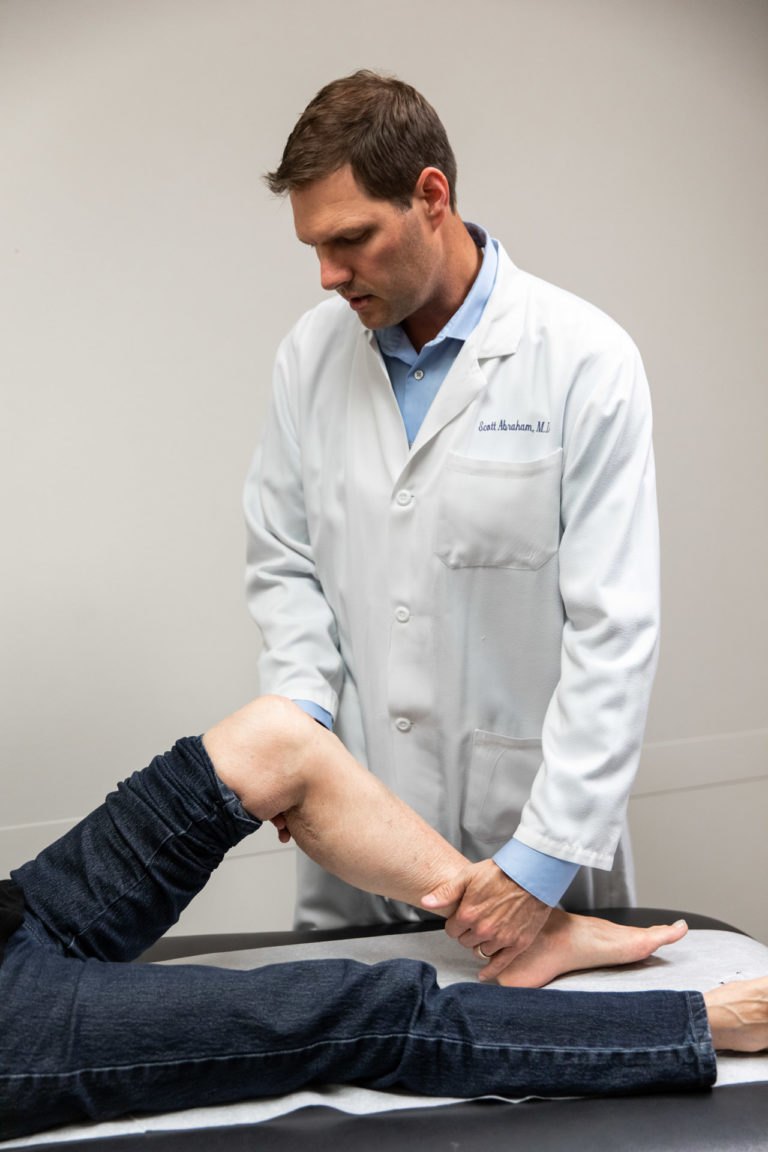
Your individualized tendonitis treatment awaits.
Our care is personal. Our team is knowledgeable. And we’re more available than ever.
With access to board-certified specialists across Kansas City, we have the tools to meet almost every musculoskeletal condition.
Our Locations
Overland Park, Kansas
10777 Nall Ave Suite 300 Overland Park, KS 66211Leawood, Kansas
3651 College Blvd. Leawood, KS 66211Kansas City, Missouri
Saint Luke's Medical Plaza #1 4320 Wornall Rd., Ste. 610 Kansas City, MO 64111Belton, Missouri
Belton Regional Campus 17067 S Outer Rd #301 Belton, MO 64012Blue Springs, Missouri
St. Mary’s Medical Center, Main Entrance 203 NW R.D. Mize Road, Suite 200 Blue Springs, MO 64014Shawnee Mission, Kansas
7450 Kessler St ste. 140 Merriam, KS 66204Prairie Star (Lenexa, Kansas)
Prairie Star 23401 Prairie Star PkwyBldg. B, Ste. 220 Lenexa, KS 66227

